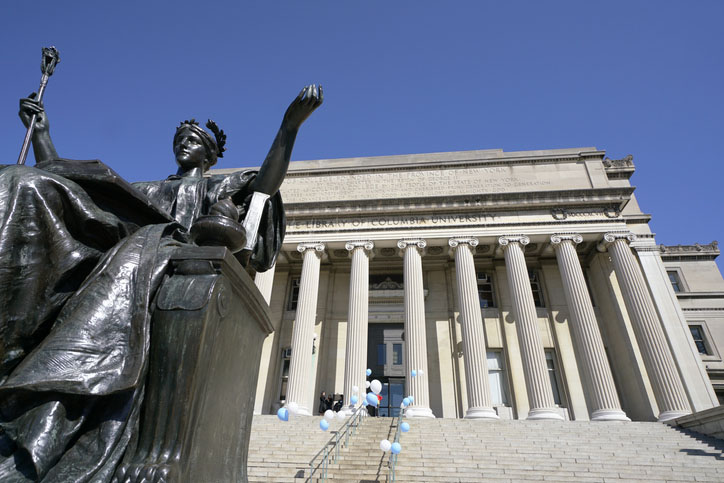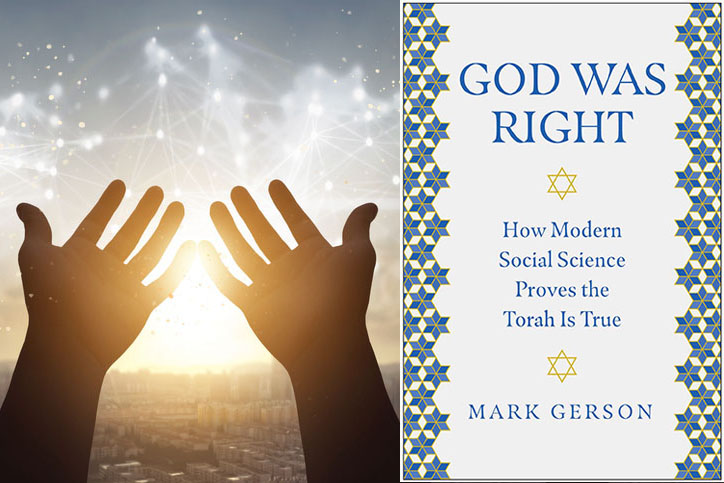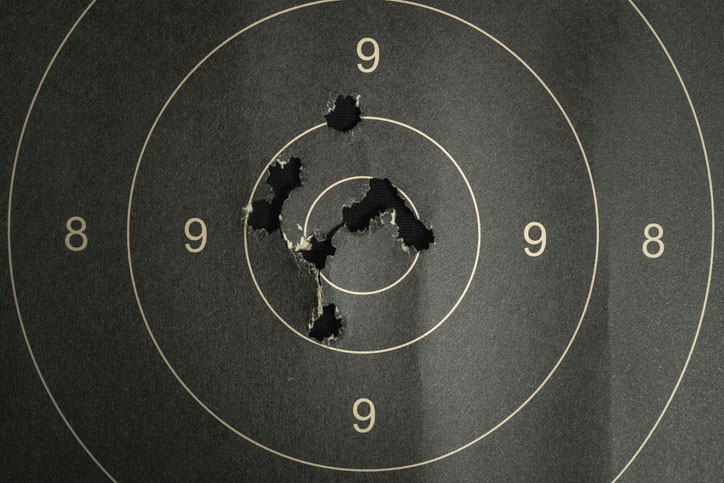"It’s a headache that we don’t need," said Rabbi Marvin Hier, the founder and dean of the Simon Wiesenthal Center, articulating a central complaint about Mel Gibson’s upcoming film "The Passion" and its resurrection of ancient images of Jews and the death of Jesus.
"I wish the movie was never made," radio talk-show host and Jewish moralist Dennis Prager said with equal bluntness.
Controversy over "The Passion" has swept through Jewish leadership circles, with the yet-to-be released film generating a discomfort and fear not found in the typical, sometimes difficult conversations that Jews have with non-Jews over contentious issues such as Israel. The film’s very existence crisscrosses issues close to Jewish culture — one religion’s narrative offending another faith, the place of Jews in a non-Jewish world and art versus censorship.
"The Jewish community has to respect the rights of Christians to tell their story," said Paul Lauer, marketing director at Gibson’s Icon Productions, which made the $25 million film. "It’s a sacred story and one that should not be changed."
But telling the story of Jesus’ horrific crucifixion is a delicate proposal.
"There are only two parties to what occurred — the Jews, of whom Jesus was one of them, and the Romans," Hier said. "Now since the Romans are not here anymore, if you’re upset with how Jesus died, there’s only people left to blame — and that’s the Jews."
Gibson has not announced any distributors for "The Passion"; he has had a long relationship with Paramount Pictures while his Icon Productions now is located on the 20th Century Fox lot. But the actor-director whose "Braveheart" won a Best Picture Oscar is expected to succeed in distributing "The Passion" widely next spring.
"Given his stature within the film community, I don’t think there is any doubt that he will get a distributor, even if he has to fund it himself," said Greg Laemmle, vice-president of Laemmle Theaters. "Films are still being acquired for potential year-end 2003 distribution. So the timing does not preclude the film being acquired for distribution. And the public will have the right to form their own judgment."
"The biggest thing about this is how commercial is the film?" said Milton Moritz, the California/Nevada chapter president of the National Association of Theater Owners. "And your commercial theaters, even to run subtitled films, it’s going to be difficult."
Greg Laemmle’s father Bob Laemmle said of "The Passion’s" chances in his art house theaters, "I doubt that it would be presented to us, but if it is we would consider it on its merit."
As Jewish leaders speak out against the rough cut of "The Passion" being screened to clergy, the film’s trailer is being shown to massive gatherings of evangelical Christians in an extensive marketing push before the film’s planned Easter 2004 release. During the Aug. 8-11 Harvest Crusade Christian revival at Anaheim’s Edison Field, about 100,000 Christians watched huge stadium screens displaying the four-minute "Passion" trailer, its music video-style scattershot images including a crucified Jesus.
"People are so pumped for this film," Lauer said. "We’re the No. 5 most downloaded trailer on the Internet."
The trailer’s more fleeting images also showed Jewish Pharisees tossing pieces of silver to the betraying apostle Judas, and those same Pharisees’ stunned faces when Jesus dies.
"There are two different movies being seen here, one by Jews and one by Christians," said Prager, who saw the entire film at a summer screening with Gibson and a few others at the American Film Institute. "Christians are watching the torture and death of their savior, and Jews are watching Jews depicted as Christ killers."
After an Anti-Defamation League (ADL) staffer attended a "Passion" screening in Houston, ADL National Director Abraham Foxman issued in an Aug. 11 statement claiming that the film, "if released in its present form, will fuel the hatred, bigotry and anti-Semitism that many responsible churches have worked hard to repudiate. The film unambiguously portrays Jewish authorities and the Jewish mob as the ones responsible for the decision to crucify Jesus."
Lauer said that this week he would screen the film for, "10 significant Jewish leaders" in Southern California, though he declined to name them.
"I haven’t seen the trailer and I haven’t been invited to the screening," said Conservative Rabbi Mark S. Diamond, executive vice president of the 260-member Board of Rabbis of Southern California.
Although Prager agreed with Hier’s observation about the film being a "headache," he added, "If it’s just a headache, let’s call it headache and not call it a brain tumor. Some Jews are calling it a brain tumor. That’s why I’m working with [Gibson] to undo some of the gratuitous damage. I’m worried about Jews making such a big hullabaloo that would we could have a crash with our best friend, who happens to be Christian."
"The Passion" trailer has been seen on Christian and Catholic channels including TBN, CBN and EWTN. The film’s rough cut was screened in early August for several hundred receptive Catholic priests at Loyola Marymount University. Reaction to the trailer was supportive at this summer’s Christian Booksellers Association convention in Orlando, one of many Christian business conventions and music festivals that "Passion" marketers are targeting.
Christian retailers are expected to recommend "The Passion" even though its graphic, bloody scenes will give it at least an R rating — usually the kiss of death for Christian retailers’ film endorsements. "It’s a marketing arena populated by gatekeepers all along the way," Christian marketing consultant Jim Seybert said.
One concern of Jewish leaders is not how American Christians will view Jews after seeing "The Passion," but how the film will play abroad. Jews can point to Harvest Crusade pastor Greg Laurie’s innocent enough "Passion" endorsement — "I can see that film being shown around the world to touch untold millions of people" — to crystallize their fears about it being seen in Muslim countries.
"This probably will be a huge hit in the Arab world, where they do hate Jews," said Prager, adding that he made that exact observation to Gibson after they watched the film. "He was shocked. It never occurred to him."
Lauer said on Aug. 11 that Gibson would release an "open letter" to Jews that same week. Gibson said in a statement earlier this summer, "Neither I nor my film are anti-Semitic…. Anti-Semitism is not only contrary to my personal beliefs, it is also contrary to the core message of my movie."
As of press time, Gibson had not released the new letter.
Key ADL complaints are that the film allegedly portrays Jewish leaders and crowds as being heavily involved in the crucifixion, that "The Passion" portrays Jews as blood-thirsty, sadistic and money hungry, and that its historical errors include showing the Jewish high priest controlling Pontius Pilate.
In light of Jewish leaders’ concerns, Lauer said changes in the unfinished "Passion" may be done, but that, "regardless of what changes may still be possible in the film, the most important issues are what can be built around the film."
"We expect Christians to make it clear to the Jewish community that they do not see Jews as Christ killers, and that we hold ourselves responsible for the death of Christ," he said. "The Christian community needs to speak plainly and clearly about absolving the Jews from these centuries of old bigotries and hatreds."
"We expect that tolerance going both directions," Lauer added. "I have a number of leaders in the Jewish community collaborating with us to create a platform for discussion and dialogue. It can’t be an ecumenical one-way street."
Beside Prager, the film also has been seen by conservative Jewish film critic Michael Medved, who praised it along with both front-rank and second-tier Christian leaders. Lauer said the Rev. Robert Schuller, of the Crystal Cathedral in Garden Grove, saw the film last week, "and pledged his support."
Laurie told his stadium audiences that it is, "absolutely ridiculous" for Christians to blame any one, isolated group — including Jews and Romans — for Jesus’ death.
The Journal interviewed numerous Christians at the Harvest Crusade, who said they blame all of humanity for Jesus’ death. But while such unabashed religious people are more concerned with converting souls to Jesus than finding culprits of his death, the issue of Jewish blame still circles the film.
"When I became a Christian, it never even dawned on me to blame the Jews," Chuck Canady, 41, told The Journal. "I’ve seen the clip three or four times."
But then there was a group of young Asian American Christians who all attended the same Boston church during college. One of them talked about Jesus, Jews and history, and in an unguarded moment she said, "You can’t really go around the fact that the Jews killed Jesus." Quickly realizing what she said, the woman said, "No — no way!" and then added, "I never thought of it like that until people started saying that."
"The Passion" also appeals to a large wing of evangelical Christians who believe that Jews will accept Jesus in a Christian-run, Book of Revelations-predicted, end-of-times Israel. Many Christians at Harvest Crusade attend Pentecostal Assembly of God churches; during the Harvest Crusade weekend, the 3,000-seat Assembly of God Church in Chino Hills held a three-day annual Israel Bible and Prophecy Conference with Messianic Jewish speakers not recognized by most Jews as being Jewish.
"There are passages in most people’s sacred scripts that are troubling and offensive to others," Diamond said. "And as religious leaders we have a responsibility to think of the consequences of what we’re putting before our audiences."
As Christian target marketing rolls ahead, "The Passion" controversy may not appear so pressing among Jews beyond Jewish leadership circles.
"I was at temple on Friday night and normally people ask me about films," Greg Laemmle said. "And no one was asking me about this one."
Prager said one reason Christians are embracing "The Passion" is because, "They perceive a huge anti-Christian bias in America. The only reason that a Jew would be offended is if the people watching it think that Jews are despicable. That’s what Jews are understandably afraid of. I am not offended unless people mean offense."
But Hier is staying on a firm but diplomatic course. "Despite the best intentions of Mel Gibson, and I believe him, despite his best assurances, it’s not words that will help heal these wounds. When people see this film they’re not going to bring to the theater Mel Gibson’s letter. It’s not too late that with goodwill, there are a number of suggestions."
And Jews in Hollywood — uncomfortable with censorship — may accept this Gibson explanation: "My intention in bringing it to the screen is to create a lasting work of art and engender serious thought among audiences of diverse faith backgrounds [or none] who have varying familiarity with this story."
































